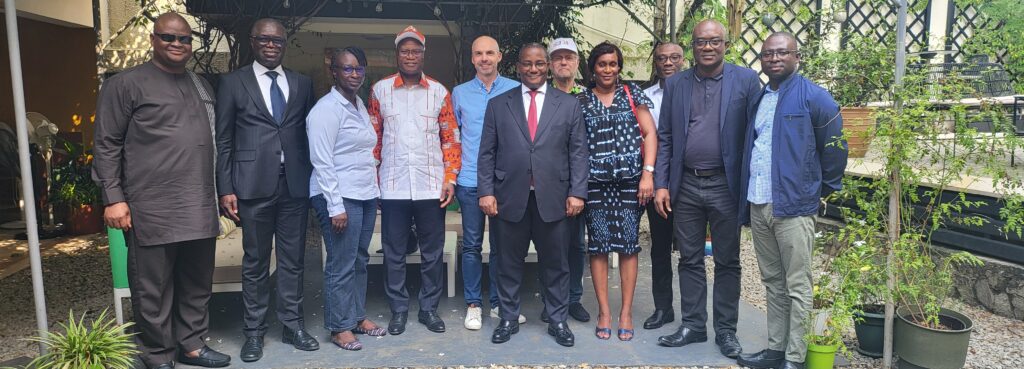RTE international supports CIE in structuring the management of its power grid maintenance activities in Ivory Coast
Paris, September 2025 – The Compagnie Ivoirienne d’Électricité (CIE) has entrusted RTE international with a strategic project to structure and professionalise the management of its maintenance activities across the national electricity transmission network. The initiative forms part of CIE’s broader transformation plan under its “Cap 2026” strategy.
A long-standing partnership between CIE and RTE international
RTE international has been a trusted partner of CIE for many years, having already carried out several technical assignments in Ivory Coast, including in the run-up to the Africa Cup of Nations 2023. On that occasion, a joint initiative helped secure the national grid and strengthen local expertise, ensuring uninterrupted power supply throughout the tournament.
Building on this success, CIE has once again called on RTE international to extend this support methodology across all transmission network maintenance functions.
Towards unified management of Ivory Coast’s transmission system maintenance
Running from July 2024 to July 2025, the project aims to lay the foundations for structured, efficient and sustainable management of all maintenance disciplines: overhead lines, substations, low-voltage systems and management processes. The approach is built around four areas of intervention, combining the expertise of RTE and RTE international.
Strengthening governance and oversight
The first area focuses on internal organization, with the creation of dedicated governance bodies (composition, meeting frequency, scope and coordination mechanisms). This framework will enable better sharing of priorities, systematic feedback, improved information flow and stronger internal controls. Integrated into the Cap 2026 strategy, the approach seeks to enhance both the technical and economic performance of grid assets, using indicators such as the reduction of the average outage duration.
Improving maintenance practices and network reliability
Field-based “action training” sessions have helped raise the operational capabilities of transmission teams. A review of maintenance policies has led to revised operating procedures and enhanced asset management databases. A multi-criteria assessment system has been introduced to identify the most critical installations, allowing maintenance efforts to be prioritized for both performance improvement and cost efficiency.

Developing workforce expertise
Working alongside the Centre des Métiers de l’Électricité (CME), tailored training pathways have been designed for each profession to ensure the preservation and development of technical skills within transmission teams. At the same time, efforts have focused on strengthening professional communities within CIE, promoting regular practice of key technical procedures and encouraging peer-to-peer exchanges of best practice.
Anticipating future grid developments and technologies
The final component is forward-looking, preparing for future resource and skills requirements through a projection methodology based on forthcoming investments and maintenance policies. Close collaboration with engineering teams, through cross-functional governance, has also been introduced to ensure new infrastructure projects are fully integrated into the planning process.
Driving long-term performance of Ivory Coast’s transmission grid
This initiative marks a milestone in the evolution of transmission system maintenance in Ivory Coast. It is designed to deliver measurable improvements in both technical and economic performance, greater reliability of network assets, enhanced workforce expertise and long-term coverage of future needs. Welcomed by CIE’s executive management, the project represents a shift towards more autonomous and sustainable management of maintenance activities.



